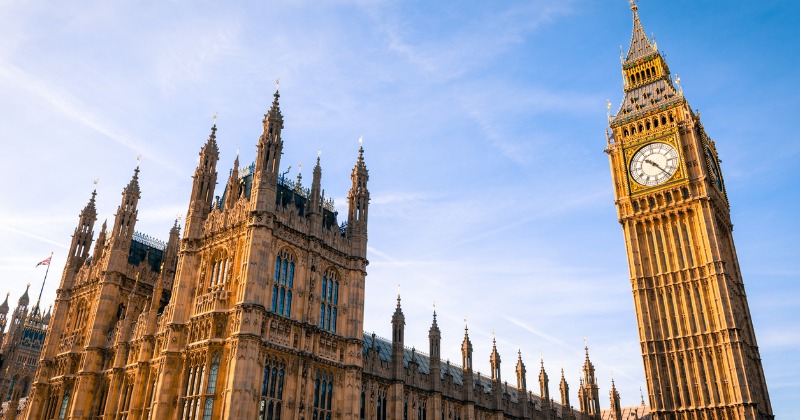The government has published its landmark schools bill, the first major piece of legislation for the sector since 2016.
As promised in Tuesday’s Queen’s Speech, the draft law sets out proposed new academy intervention powers, new duties on attendance and support for more schools to join trusts.
If passed, the bill will implement many of the policies set out in the government’s recent schools white paper.
The draft legislation was introduced in the House of Lords this week, and will now begin its journey through Parliament.
Caveat: The bill can be amended in Parliament, so what is set out below is the government’s intentions, not necessarily what will end up being signed into law.
You can read the full draft bill here, and Department for Education policy documents about each proposed law change here. An impact assessment is published here.
1. Trust standards replace ‘inconsistent’ regulation
Most trust regulation will move from current funding agreements, legislation, and guidance to a new statutory “academy trust standards” regime.
This will create a consistent, “simplified legal framework”, as funding agreements currently differ depending on when they were signed.
The DfE said this would “mostly” replicate existing rules, with new requirements on attendance, local governance and complaints.
There will also be new collaborative standard requiring trusts to work “constructively” with partners.
2. Government can terminate academy trusts
The DfE will have new powers to intervene at academy trust level from September 2023. At present, most of its intervention happens at school-level.
There will be new powers to:
- Issue a ‘notice to improve’, where the education secretary believes a trust has “significant weaknesses in management or governance”
- Issue a direction to an academy trust that has “failed to discharge a duty imposed on it” (including, but not limited to, the academy trust standards)
- Replace an academy trusts’ board of trustees with an interim board if weaknesses are not addressed
- Appoint additional trustees if no progress after a ‘notice to improve’
- Terminate academy trusts, rather than the current school termination powers
3. Tackling ‘unequal’ church land issues
Many Church of England and Catholic schools operate on sites owned by special charitable trusts.
When they academise and move site, councils currently only have to give these trusts a 125-year lease – whereas non-academy peers are handed land freehold.
The DfE will end this “unequal” setup by mandating that councils hand over sites freehold.
4. Academy faith rights protected…
The DfE will remove a “disincentive” to Christian school academisation by enshrining in statute that they will have the same protections over delivering religious education and collective worship as maintained schools.
It will also ensure the same statutory protection for academies’ religious character as for maintained schools. The laws will provide “reassurance” for faith groups, guarding against trusts amending their rules to “weaken the religious nature” of particular academies.
5. …only parent ballot can remove selection
The ability of trusts or governing bodies to propose to remove selection from a grammar school will be removed, with a public ballot of parents the only mechanism to make them comprehensive.
No parental ballot has been held since 2011.
6. Councils able to force through academy conversions
Councils will be able to apply for an academy order for their schools – this could be for just one, some or all of their schools.
LAs will only have to consult with the schools’ governing bodies, and obtain consent from the trustees if they are applying for foundation and voluntary schools/
When an academy order is issued, the governors and local authority will have to take “all reasonable steps to facilitate the conversion of the school”.
If agreement can’t be reached with schools, the DfE said whether the LA includes those schools in its plans “will depend upon whether the local authority is prepared to continue to maintain individual schools”.
The change is “expected” to begin in September 2023.
The DfE said this would “support” councils to establish new MATs. There is little in the bill about the white paper pledge, because it is currently DfE policy not to allow council trusts, rather than the law.
7. The new attendance rules
The government plans to change the law to require councils to use their powers to promote regular attendance and reduce absences.
Schools will also be required to publish attendance policies and implement efforts to promote regular attendance.
The education secretary will be allowed to decide what will warrant an absence fine, which is currently set at council level.
Current laws on granting absence will be extended to academies.
The government wants these changes to come into effect in September 2023.
8. Another consultation on fair funding
There will be legislation for “direct” school funding, rather than cash going to local authorities to divvy up based on their own funding plans.
DfE will consult on the plans “before summer 2022” detailing how it will be implemented. The laws could allow special and alternative provision schools to be funded that way in future.
9. A register of children not in school
The government will legislate to create a duty on councils to keep a register of children not in school.
There will also be a duty on parents to provide information to councils for the register.
Out-of-school education providers will be required to provide information to LAs on request.
Councils will also have to provide support to registered home-educating families where it’s required.
10. Powers to speed up truancy crackdown
The government will also legislate to speed up the issuing of school attendance orders, which are issued by councils on behalf of heads to parents or carers of absent pupils. School attendance orders are a precursor to absence fines.
It is not currently against the law for parents who have been issued with an order to withdraw their child from school. This will become a crime under the proposed legislation.
The maximum penalty for breaching an attendance order will increase to a £2,500 fine or up to 3 months’ imprisonment.
11. More teachers fall under banning rules
Powers to ban teachers will be widened to cover misconduct by teachers working in online, post-16 and FE settings or not currently teaching, and allow DfE staff to refer teachers.
12. Ofsted inspectors able to seize illegal school evidence
The Department will strengthen the powers available for Ofsted to identify and investigate illegal schools and allow inspectors to “act in a more intrusive fashion”.
It will be a criminal offence to obstruct or not provide information and assistance to inspectors during visits over suspected lawbreaking.
Ofsted can request a warrant where inspectors are denied entry, including for a police constable to attend where “reasonable force is needed”.
Inspectors will also be able to search for and seize evidence.
13. Private school suspension powers…
The government will be able to suspend registration of an independent school for a set period, with the ability to extend that period, where there is a risk of harm to pupils attending or breaches to the independent school standards or the early years framework.
It would be an offence for the school to operate during the suspension, punishable by up to six months in prison and/or an unlimited fine.
14. …and new registration rules
Settings will have to be registered as a school if they provide full-time education to five or more children, or one or more child who has either an education health and care plan or is looked after.
Under another change to the law, independent schools will need to apply for government approval if they change proprietor, address, the age range of pupils, the maximum number of pupils, whether the school is for boys or girls and whether it provides accommodation.
15. Speed up private school closure appeals
Deregistration – which means closure – is the “ultimate sanction” for independent schools, and is often appealed, meaning that institutions can stay open until the action is resolved.
The DfE wants to change the law so that appeals from institutions that have failed for a long time can be heard and resolved more quickly.















This new Bill. Its absolutely a joke. DfE want completely take away powers from parents over their children..
This is an interesting period in education. Are parents aware?
what is the point? the ultimate best education is not necessarily where government sits on top of the school and its authorities but is measured by the end result. As a teacher of 37 years and as a teacher who has seen 2 generations and more I can vouch for the fact that most important of all is emotional health. To give a pupil a good feeling about themselves AND THEIR FAMILY gives them the ability and stability to build a future. I hope government will ensure that parents can give the education they wish to children (as long as not disturbance to public) . Th children need number one; to respect parents if they are to have any respect for society!!!! Lets look at inner values ,not just at spouting knowledge that gets us nowhere. Family values ARE MOST IMPORTANT. IT WOULD BE A SHAME TO CHANGE PURE GOLD FOR GOLD-PLATED!!!!!